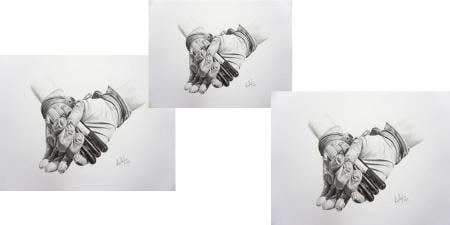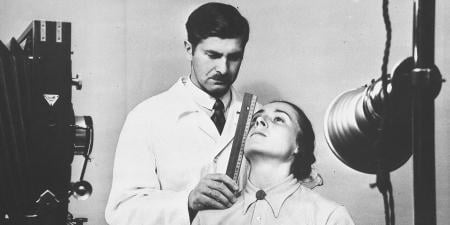The past is never dead. It’s not even past.
William Faulkner1
As we synthesized this issue of the AMA Journal of Ethics, the medical profession was grappling with some of the most challenging ethical problems in generations: a viral pandemic with anticipated shortages of critical resources and, in the United States, lack of national coordination around COVID-19 testing, tracking, and prevention and treatment, all of which exacerbated and put a floodlight on underlying racial, geographic, health, and socioeconomic inequities.2
Yet, even as these problems reflect modern medical and political dynamics, they are also clearly rooted in history. In fact, these current dysfunctions are so obviously influenced by history that some bioethicists have urged that courses in bioethics take a historical perspective.3 This development is to be strongly encouraged, of course, as those who can learn from the past are better equipped to address challenges in the present and future.
This special issue makes the case that any examination of medical history must look beyond medical history in the United States. Specifically, students must learn about the complex ramifications of a shared international legacy of racism in medicine. Indeed, students should know that American medical racism in the early 20th century became intertwined with, influenced, and supported the emergence of German medical racism,4 because this shared medical racism led to some of the most horrific examples of man’s inhumanity to man in recorded history. The historian Susan Lederer, PhD, states that this history is “not for the faint of heart” (email, January 13, 2020), and she is correct. It is a painful legacy we explore in this issue, one from which we must not turn away.
Medical professionals in the United States were not forced to participate in the institutions of slavery or Jim Crow segregation, but many did, and many brought “science” to bear when arguing in favor of slavery and racial segregation.5 In this issue, the first author describes how physicians in Germany also joined the Nazi party by choice. Leading physicians in Germany, the United States, and elsewhere used arguments from scientific racism, eugenics, and “race hygiene”—buttressed by a radical new view of medical ethics—to become witting or unwitting architects of the rise of the Nazi regime and key players in some of its most terrible, violent, and murderous abuses.6 In other words, doctors in Germany were not, by and large, victims of the Nazi regime, nor were they merely complicit or even collaborators—they were leaders.
The bottom line, as Levine et al show, is that many doctors, nurses, pharmacists, and other medical scientists developed, promoted, and carried out programs ranging from forcible sterilization of individuals deemed “unfit” to reproduce, to the infant “euthanasia” program and the infamous adult T-4 “euthanasia” program, in addition to their better-known roles in heinous experiments in concentration camps and elsewhere.7 In the end, even the Holocaust itself (the genocide of Jews and other marginalized communities of Europe) was described by German medical scientists as a public health program, designed to promote the creation of a so-called “master race.”8 The vast majority of these medical perpetrators never expressed remorse, never were caught, and never were punished. Still, the legacy of their crimes has resonated through the ages.
This issue explores a number of ways in which this history continues to influence contemporary thought and policy. It includes essays by Arthur Caplan on modern uses of Nazi research data and Eric Juengst on the impact of this history on modern genetics. Alexandra Stern explores the relations between racism and dehumanization, then and now, and Susannah Sirkin describes implications of this history for law and medicine at the US-Mexico border today. In sum, as the historian of medical ethics, Robert Baker argues, the ways we think about modern bioethics are essentially framed by principles and codes that arose directly in reaction to the medical crimes of the Holocaust.
Nevertheless, if it is true that one cannot fully understand modern bioethics without first learning about health professional involvement in the Holocaust, it’s also true that the historical impact or resonance of the Holocaust in bioethics has generally been at a low frequency in the United States. This painful history has largely been overlooked in American medical education, perhaps because to examine it closely one must first disturb the comfortable view of our nation and our profession as entirely heroic actors in the Second World War.
Today, looking back on the year 2020, it seems possible that the events of the past year—and particularly the exposure and exacerbation of health care disparities—will eventually be seen as a turning point in the history of medicine when it became widely recognized as problematic—and not just in the United States—to view medical professionals as purely altruistic, color-blind healers, blameless in creating and sustaining health care systems that predictably and consistently generate racial and ethnic health disparities.
Looking forward, perhaps the year 2021 will become the year in which every health professional training program awakens to the fact that health sciences students (and practitioners) must learn about and reflect upon the historical roles of health professionals in creating both the atrocities of the Second World War and the different but related atrocities of racial injustice that we witness today. After all, these legacies are deeply entwined. Our profession’s involvement in providing the pseudoscientific foundations that supported ethnic and racial violence during the Second World War cannot be disentangled from the history of scientific racism and its ongoing, powerful, and pervasive influence on the world today.
References
-
Faulkner W. Requiem for a Nun. Random House; 1951.
- Webb Hooper M, Nápoles AM, Pérez-Stable EJ. COVID-19 and racial/ethnic disparities. JAMA. 2020;323(24):2466-2467.
- Lerner BH, Caplan AL. Judging the past: how history should inform bioethics. Ann Intern Med. 2016;164(8):553-557.
-
Kühl S. The Nazi Connection: Eugenics, American Racism, and German National Socialism. Oxford University Press; 1994.
- Charatz-Litt C. A chronicle of racism: the effects of the white medical community on black health. J Natl Med Assoc. 1992;84(8):717-725.
-
Proctor RJ. Racial Hygiene: Medicine Under the Nazis. Harvard University Press; 1992.
-
Levine M, Wynia M, Himber M, Silvers W. Pertinent today: what contemporary lessons should be taught by studying physician participation in the Holocaust? Conatus J Philos. 2019;4(2):287-302.
-
Lifton RJ. The Nazi Doctors: Medical Killing and the Psychology of Genocide. Basic Books; 2000.



